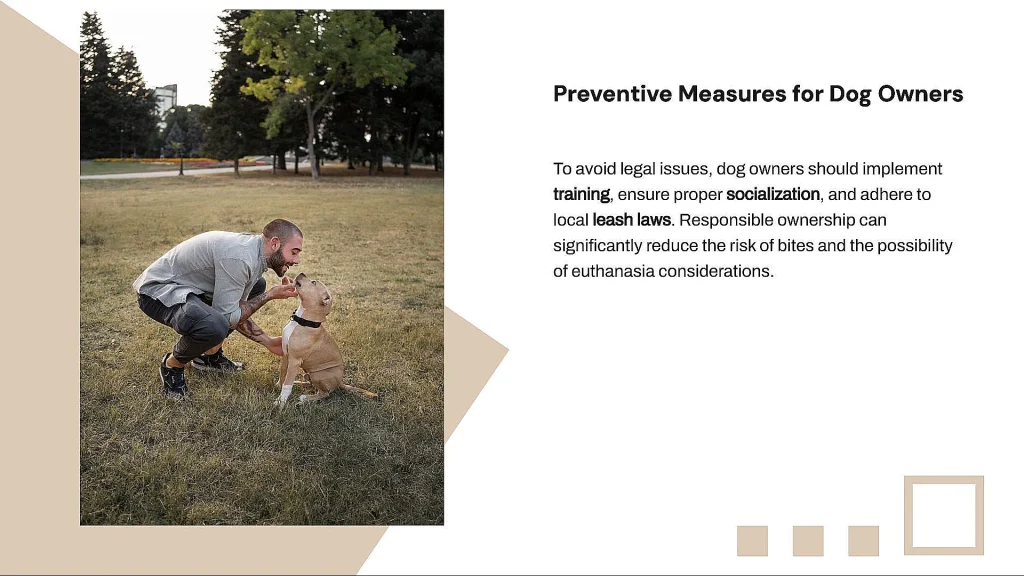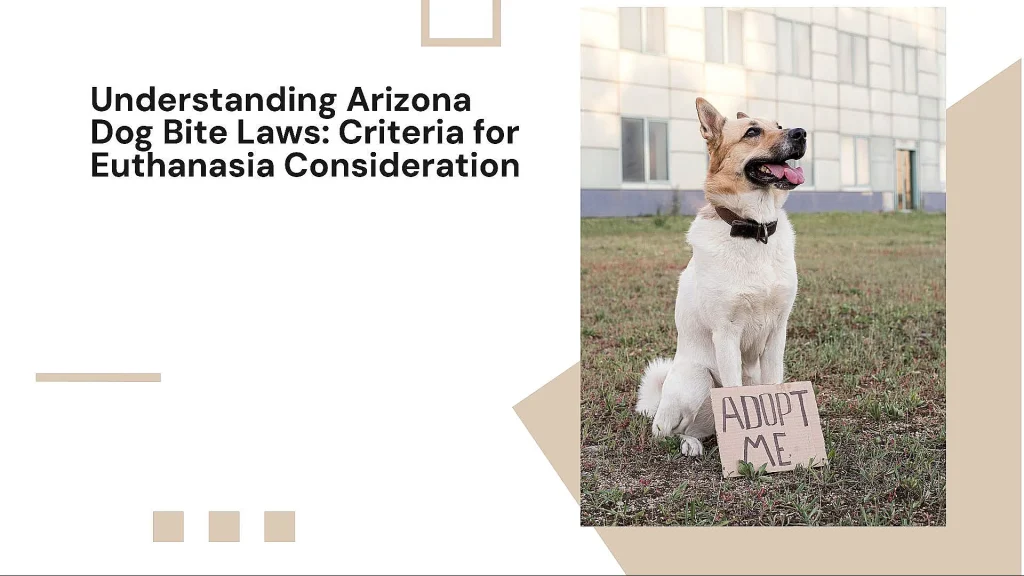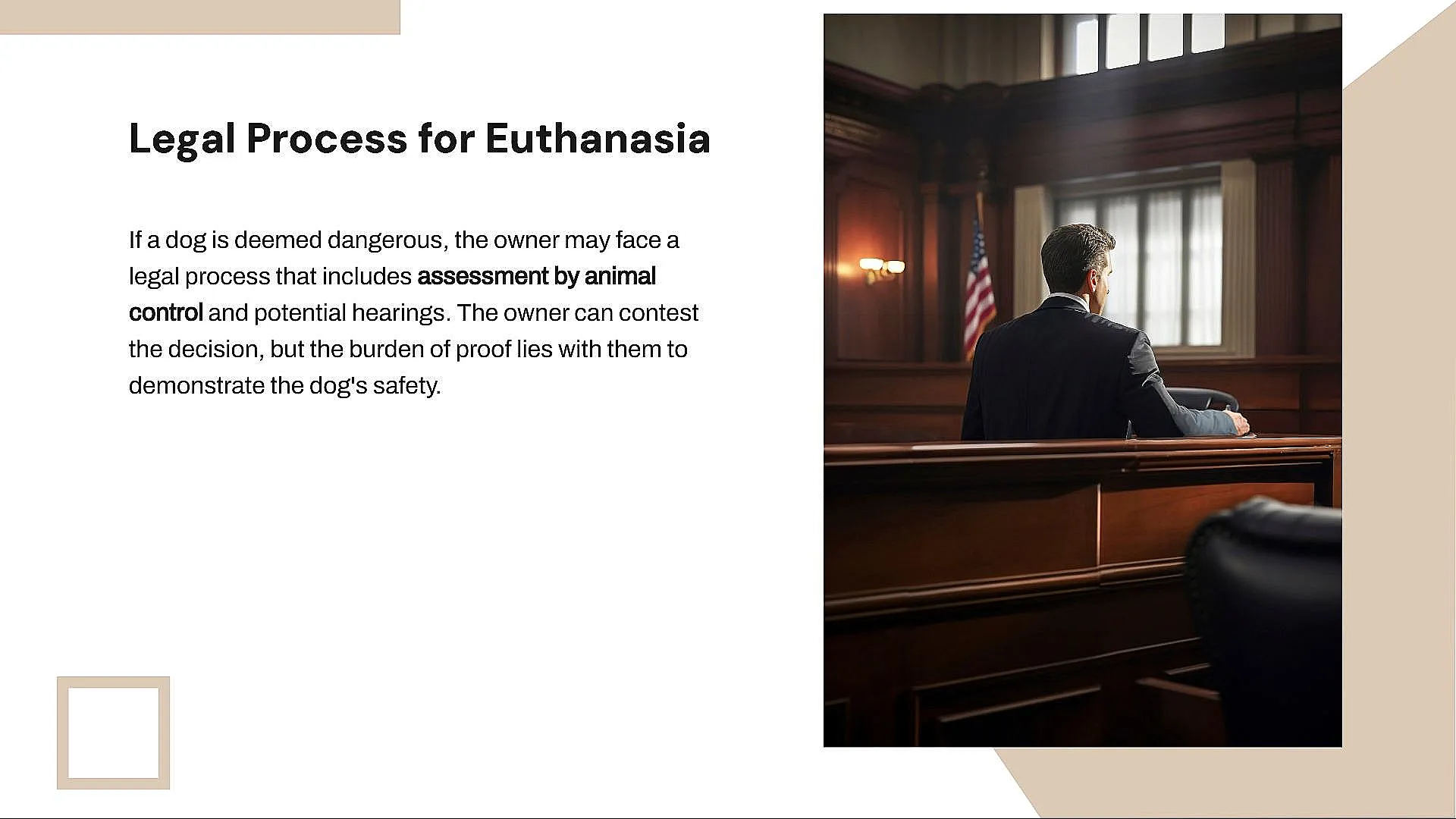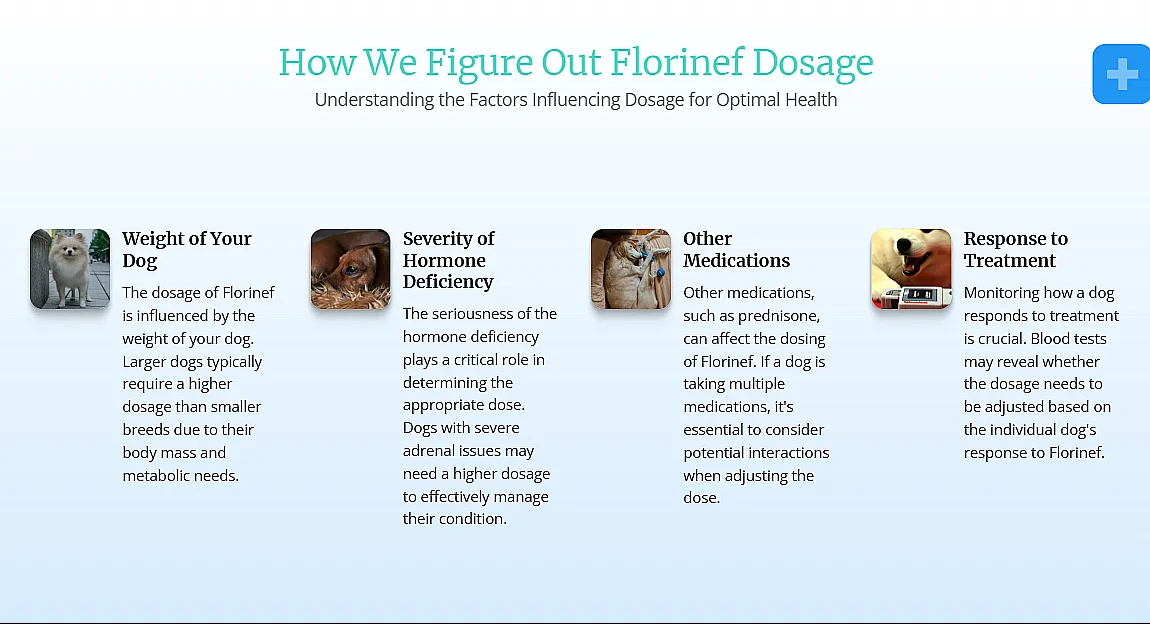Getting a grip on Arizona’s dog bite law is super important for dog owners and anyone who might get bitten. Here, the law is pretty strict which means if your dog causes injury, you can be held responsible even if you didn’t think your dog was dangerous. This is different from other states where you need to prove that the owner knew their dog was aggressive. For example, if your usually friendly dog suddenly bites someone, you could still be on the hook for any injuries.
There’s a case that highlights this issue: a family dog that had always been good-natured ended up biting a mail carrier. Because of Arizona law, the owner was held liable, which shows just how important it is for pet owners to know what their responsibilities are.
Legal Responsibilities of Dog Owners
In Arizona, dog owners have a lot of responsibilities that go way beyond just feeding and giving them a roof over their heads. Here’s what you need to keep in mind:
- Control: You have to make sure your dog is properly restrained when out and about, whether that’s using a leash or keeping them in a secure area.
- Vaccinations: It’s legally required to vaccinate your dog against rabies. Unvaccinated dogs can cause more harm and might have tougher penalties if something happens.
- Preventing Aggression: You need to be proactive in preventing your dog from becoming aggressive, which means training and socializing them properly.
Not sticking to these rules can lead to civil liability for injuries and even criminal charges in cases where a known aggressive dog isn’t controlled. By grasping Arizona’s dog bite laws, owners can take steps to keep their pets safe in the community.

Understanding Euthanasia in Dog Bite Cases
Definition and Purpose of Euthanasia
When we talk about euthanasia in dog bite cases, we’re referring to the humane choice of ending a dog’s life if it’s a serious threat to public safety or itself. This isn’t a decision anyone takes lightly; it usually comes about in urgent situations where a dog’s behavior suggests it could hurt others. I’ve seen how heavy this topic can be, and while it might be tough to think about putting your pet down, sometimes it’s considered necessary for the safety of others.
Here are a couple of key reasons why euthanasia might be considered:
- Severe Aggressiveness: If a dog is extremely aggressive to people or other animals, they may be put down.
- Rabies Concern: Dogs suspected of having rabies are a serious risk since this disease can be deadly for people and other animals.
Factors Considered for Euthanasia Decision
When deciding if euthanasia is the right choice, animal control officers look at a few factors:
- History of Aggression: A dog that has bitten or attacked before might be seen as dangerous. If there are multiple incidents, this can weigh heavily in the decision.
- Behavior During Investigation: If a dog is aggressive during the assessment, animal control is likely to recommend euthanasia.
- Health Conditions: Sick or injured dogs can behave differently, which might lead to aggression. In such cases, humane euthanasia could be viewed as a kind act.
- Owner Compliance: The owner’s attitude and willingness to take steps to manage their dog’s behavior matter too. For instance, if an owner shows they’re committed to training their dog, that could influence the judgment.
Understanding these factors helps both victims and dog owners deal with the tough emotions and legal issues involved in dog bite situations and ensures decisions about euthanasia are fair.
Arizona Regulations on Euthanasia in Dog Bite Incidents
Statutory Provisions on Euthanasia
In Arizona, there are clear laws that outline how euthanasia works for dogs involved in bite cases. According to Arizona Revised Statute 11-1014, unvaccinated dogs that bite someone must typically be confined and quarantined for at least ten days. This rule helps observe the dog’s behavior and make sure it’s not a threat during that time.
Plus, if the dog shows signs of having rabies, authorities might consider euthanasia for safety’s sake. The key thing is that euthanasia isn’t an automatic response to a bite; it’s a carefully thought-out step based on specific legal rules. I’ve been there when owners worry about losing their dogs after an incident, and it’s important to reassure them that euthanasia doesn’t just happen without good reason.
Circumstances Permitting Euthanasia
Euthanasia can happen in specific situations, and knowing these can help make the process less daunting:
- History of Aggression: If a dog has attacked or bitten multiple people, it may face euthanasia.
- Illness or Injury: If a dog has a health condition leading to aggressive behavior, euthanasia might sometimes be considered the kind thing to do.
- Owner Consent: If the owner agrees, especially if they realize their pet is a constant danger, euthanasia can move forward.
- Behavior During Investigation: Dogs acting aggressively when being assessed can lead to authorities recommending euthanasia to protect the community.
These rules are set up to keep everyone safe while also giving dog owners a fair shot at being responsible.
Ethical Considerations in Euthanasia After Dog Bites
Animal Welfare vs. Public Safety
Making the decision to euthanize a dog after a bite is hard and often brings up the debate between animal welfare and public safety. On one hand, there are strong advocates for animal rights who want to protect pets. I’ve talked to many dog owners who are heartbroken thinking about losing their pet and often share stories of how dogs can be successfully rehabilitated.
On the other hand, if a dog has a history of violence, the safety of the community needs to come first. Arizona laws only allow for euthanasia in really serious cases like repeated bites or obvious signs of rabies. Finding a balance is crucial; ending a life isn’t something to take lightly.

Role of Veterinarians in Euthanasia Decision
Veterinarians are key in figuring out if euthanasia is the best option after a dog bite. They can help judge a dog’s health and behavior, leading to decisions that respect both ethics and the law.
Here’s how they contribute:
- Behavioral Assessment: They can evaluate if the dog’s aggression is an isolated incident or part of a bigger issue.
- Health Evaluations: They look for any underlying health problems that could lead to aggressive behavior. A dog in pain might act out, so sorting that out can sometimes help turn things around.
- Recommendations for Rehabilitation: If a dog can be helped, vets often point to specialists or resources to get them back on track.
Working with veterinarians helps ensure that decisions around euthanasia think about the dog’s wellbeing while also protecting the community.
Alternatives to Euthanasia in Arizona Dog Bite Cases
Behavior Modification Programs
When a dog bites someone, the first thought might be to consider euthanasia, especially from worried community members. But it’s worth noting that there are good alternatives, and one of the best is enrolling the dog in behavior modification programs.
These programs look to change problematic behaviors through positive reinforcement while also helping strengthen the bond between the dog and its owner. Here are a few highlights:
- Professional Trainers: Certified behaviorists can assess how the dog behaves and create a unique program just for them.
- Socialization Techniques: Gradually getting the dog used to different environments can help reduce anxiety that might cause aggression.
- Owner Involvement: Dog owners need to be actively involved in the training. This way, they learn how to manage their dog’s behavior down the line.
I remember working with a family whose dog had bitten a guest. They were so relieved when they found a behavior modification program that brought their pup back to being a friendly companion.
Legal Measures Beyond Euthanasia
Besides behavior modification, there are legal steps that can be taken to guard the community without having to go down the euthanasia route. In Arizona, these could involve:
- Restricting Freedom: Owners might be required to keep their dog on a leash or in a fenced area to prevent any future incidents.
- Mandatory Muzzling: If the dog is out in public, a muzzle can be necessary when interacting with others.
- Ongoing Assessments: Authorities might recommend regular check-ins with a vet or animal behaviorist to monitor the dog’s behavior and ensure any training is working.
These legal measures balance keeping the community safe with the wellbeing of the dog. When the right actions are taken, it can lead to rehabilitation instead of euthanasia which shows a more compassionate way to approach pet ownership and public safety.
Case Studies and Implications
Notable Cases Related to Arizona Dog Bite Law
Arizona’s dog bite law has come into play in several cases that show how it impacts everyone involved. One case that stands out is about a young boy bitten while playing in a neighbor’s yard. Even though the dog had a clean record, the owner ended up being held responsible for the boy’s injuries. This case really reinforced how important it is for dog owners to be proactive about preventing incidents.
Another case involved a bite that happened in a local park, where the owner claimed the victim provoked the dog. But the court focused on strict liability, ruling that the owner was still liable because the dog wasn’t properly restrained. This displays how complex dog bite laws can be and the need for owners to take precautions no matter how their dog has behaved in the past.
Impacts of Euthanasia Decisions on Communities
When it comes to deciding if a dog involved in a bite incident should be euthanized, it can deeply affect communities. Such decisions often trigger strong feelings among residents, with people on both sides of the argument.
Here’s how it plays out:
- Fear and Distrust: Community members may become wary of dogs in general, leading to calls for tighter regulations.
- Pet Loss: Owners whose dogs face euthanasia feel heartbroken, impacting their mental health.
- Community Awareness: These situations can ramp up awareness around dog ownership, nudging owners to be more responsible to prevent bites from happening.
I recall a time in my neighborhood when a dog was euthanized after several bite incidents. It stirred up quite a bit of sorrow among pet lovers but also led to community meetings focused on responsible pet ownership and training, ultimately making the area safer for everyone.
Understanding these cases and their impacts can help us see the complicated nature of dog bite laws and the big need for safe and responsible pet ownership.











